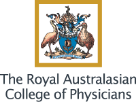What is Brain Injury?
Brain injury refers to damage to the brain that can occur due to various causes, such as trauma, stroke, tumour, infection, or lack of oxygen. The effects of brain injury can be wide-ranging and vary depending on the location and severity of the damage.
Types of Brain Injury:
- Traumatic Brain Injury (TBI): Caused by a sudden and violent blow or jolt to the head, leading to brain damage.
- Acquired Brain Injury (ABI): Resulting from non-traumatic causes like stroke, brain tumours, infections, or lack of oxygen.
Common Symptoms:
The symptoms of brain injury can vary widely, and they may include:
- Physical Symptoms: Headaches, dizziness, difficulty balancing, or loss of consciousness.
- Cognitive Symptoms: Memory problems, difficulty concentrating, and confusion.
- Emotional and Behavioral Changes: Mood swings, irritability, anxiety, or depression.
- Communication Challenges: Difficulty speaking, understanding, or expressing oneself.
Treatment Options:
Treatment for brain injury depends on the type and severity of the injury. Immediate medical attention is critical for trauma-related brain injuries. Treatment options may include:
- Medical Care: Stabilisation and monitoring in the acute phase, including surgery if necessary.
- Medications: Medications to manage symptoms such as pain, seizures, or mood disorders.
- Rehabilitation: Comprehensive rehabilitation programs tailored to the individual's needs.
Rehabilitation Management:
Rehabilitation is a vital part of the recovery process after brain injury. The main goals of rehabilitation in brain injury management include:
- Physical Rehabilitation: Targeted exercises and therapies to improve strength, balance, and mobility.
- Cognitive Rehabilitation: Techniques to address memory, attention, and problem-solving challenges.
- Speech Therapy: Techniques to improve communication and swallowing abilities.
- Occupational Therapy: Strategies to regain daily living skills and adapt to any physical or cognitive challenges.
Living with Brain Injury:
Coping with a brain injury requires a multidisciplinary approach and ongoing support. Here are some tips to support your well-being:
- Attend all follow-up appointments with your healthcare providers and therapists.
- Engage actively in your rehabilitation program and practice exercises regularly.
- Seek emotional support from family, friends, or support groups.
- Take necessary precautions to prevent further injuries.
Our team at GC Rehab is dedicated to providing you with personalised care and support throughout your brain injury recovery journey. Please feel free to reach out if you have any questions or concerns.







